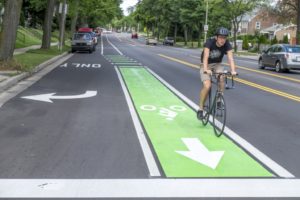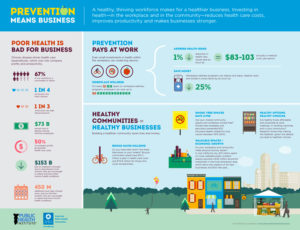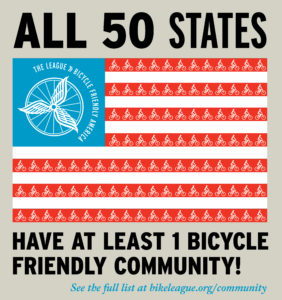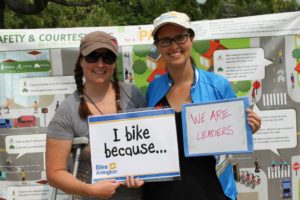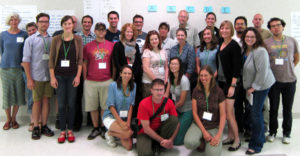Blog
The Nov. 4 midterm election saw a major shake up in Congress — and there are still several local, state and federal run-off elections looming in its wake. Earlier this month, I discussed what these results mean for biking at the state and federal levels. So what’s next? Here are the key takeaways from this month’s elections — and what to watch for in the next several months.
Read More →The City of Milwaukee once again was awarded a Bronze Bicycle Friendly Community award status by the League of American Bicyclists. We know the bar is continually being raised on what it means to be bicycle-friendly. To meet those challenges, City of Milwauke Mayor Tom Barrett has directed Milwaukee’s Department of Public Works Commissioner Ghassan Korban and City Engineer Jeff Polenske to establish a sub-committee of the City’s Bicycle and Pedestrian Task Force to define the path to not only reaching Silver but going for Gold-level status. The City is already making progress on many of the League’s recommended “Steps to Silver.”
Read More →This week Advocacy Advance released its newest report, “Leveraging Health Funding for Active Transportation Investments,” (PDF) and held a webinar to talk about the new report. The report and webinar review the recent round of CDC awards in the area of prevention and provide examples of partnerships where transportation and health have worked together. This fall the CDC awarded 193 awards totaling nearly $212 million to state, local, or tribal public health departments, and non-profit organizations or coalitions for projects that addresses prevention and wellness. Specifically, the funding programs aims to reduce the prevalence of obesity and to reduce the rates of death and disability due to diabetes, heart disease, and stroke. Active transportation has an important role to play as one of the solutions to create healthy communities.
Read More →The Juneau Police Department has played an important role in educating the community and elementary children on bicycle safety through its annual bicycle rodeos. The Police Chief has also started a new campaign called “Spot the Chief for a 10 spot”. Any member of the public who spots the Chief as he rides through town with a spotted jersey can call into the Police Department and receive ten dollars. This campaign received great media coverage and helps promote bicycle safety and awareness.Trail Mix a non-profit coordinates with the City and maintains trails for mountain bikers.
Read More →The League is excited to announce the first keynote presentation at the 2015 National Forum on Women & Bicycling: Ren Barger, founder and CEO of Tulsa Hub, and Barbara Bannon, Tulsa Hub Board Chair and expert human resources and organizational development consultant, will provide a live case study on organizational transformation. They’ll be discussing what worked, what didn’t, lessons learned and other observations.
Read More →Today the League of American Bicyclists announced 55 new and renewing Bicycle Friendly Communities (BFC). With this new round, 69 million people live in a Bicycle Friendly Community as the program extends to all 50 states. These new awardees join a leading group of more than 325 communities in all 50 states that are improving health, safety and quality of life in cities and towns nationwide.
Read More →This Thursday, November 20 at 12 pm, the League will be participating in a Twitter chat on ways to ensure safe passage to and from school for students, with special attention to issues facing communities of color.
Read More →In 2012, I spoke with Cathy DeLuca about her research in the underrepresentation of women on Bicycle Advisory Committee in California. DeLuca’s research showed that while women represent one half of the population in California, they comprise on 19% of members on Bicycle Advisory Committees and 27% on Bicycle and Pedestrian Advisory Committee. At the League, we believe that in order to equally address bike use among diverse users, you must do your best to include diverse voices at the table. Groups focused on local transportation issues like Bicycle Advisory Councils help to ensure the needs of bike riders remain at the forefront of local politicians’ minds. Women Bike was thrilled when nearby Bicycle Friendly Community Arlington, VA appointed Gillian Burgess as chair. She joined existing vice-chair and long time community bike advocate Megan Jones, creating the first women led Arlington BAC.
Read More →The Advocacy Advance partnership is pleased to announce new support from REI. Through REI’s stewardship and community partnerships, which aims to build and sustain access to inspiring outdoor experiences for the benefits of its members and the broader community, Advocacy Advance received a $25,000 grant to bolster the partnership’s Rapid Response Grants. Advocacy Advance deploys Rapid Response Grants to help advocacy organizations take advantage of unexpected opportunities to access public funds for bicycling and walking investments. These quick turnaround grants range from $1,000 – $3,000 and are awarded on a rolling basis. Since 2011, Rapid Response Grants have funded 35 campaigns in 24 states. Combined, these campaigns have won or preserved over $150 million in public funding, leveraging $1,700 in biking and walking investments for every $1 spent since 2009.
Read More →I met Sarah Johnson a few years ago while living in Omaha, NE. I think we officially met at a fundraising event for a local nonprofit, but I had known of Sarah and her bike advocacy super powers long before that first meeting. After moving to Omaha in 2010, I stopped regularly bike commuting because the roads felt unsafe. There weren’t a lot of good low volume connectors where I needed to go, and I was often intimidated by people in cars who were unused to seeing a woman on bike, just trying to get to work.
Read More →
